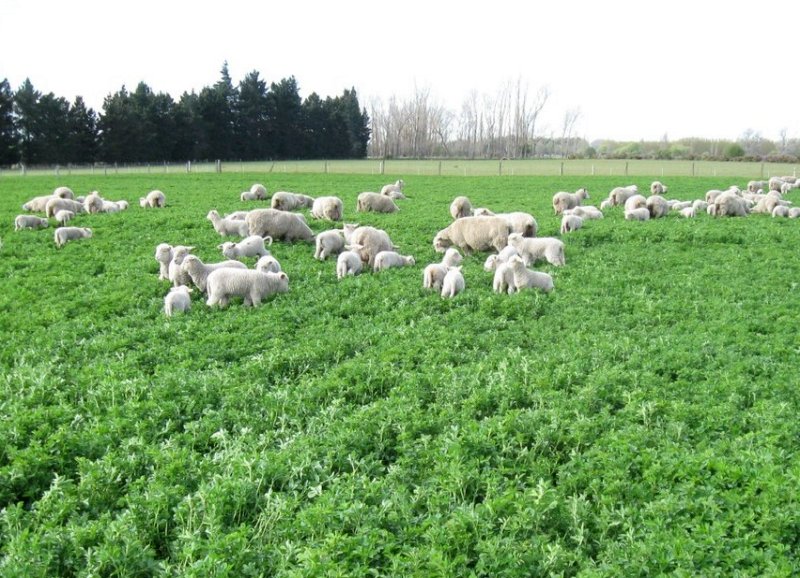
British farmers are to learn from their counterparts in New Zealand as new research explores the benefits of sheep grazing on lucerne.
The farmer-led field lab will look at grazing ewes and lambs on only lucerne - a legume that is widely used as forage for sheep in New Zealand.
It is valued for its high yield, drought tolerance, protein content, and digestible fibre.
Farmers taking part will assess lucerne’s potential in finishing lambs quicker, tolerating low rainfall, and reducing fertiliser inputs by fixing nitrogen in the soil.
The trial will also provide insight for the sector on how best to manage the feed to ensure health of the animals as a high protein content can increase risk of bloat and disease.
The idea for the field lab came from a group of farmers who were inspired by a visit to New Zealand and are now working with Dr Liz Genever, sheep and beef consultant, and the Innovative Farmers network to co-design the trial.
The group will benefit from Dr Genever's experience including her involvement in the publication of the AHDB guide ‘Growing and feeding Lucerne’.
Triallist David Cross farmed for 18 months in New Zealand and runs an arable farm in Norfolk with his father, where rotational sheep is a key part of the business model.
The pair are trying to move towards using more legumes to get their lambs finished quicker and to give summer resilience against droughts.
There have been years where they have had to grow specific crops to move lambs onto midsummer to finish, which has a cost involved and is taking land away from the arable rotation.
"Hopefully lucerne will reduce costs across the arable land by fixing nitrogen alongside improving soil structure and organic matter levels," Mr Cross said.
"We have a real drive on lamb growth rates and hopefully the more consistent pasture growth through the summer will mean we can get our lambs finished quicker.
"If we can work out how to overcome the health issues related with grazing lucerne, then everything else should fall into place because there are so many positives to lucerne."
He added: "Most agri research in this country is trial based and it’s not always relatable to on farm situations - the only way to know properly is in a real farming situation.”
Any farmer with lucerne already established can get involved in the field lab – as the crop is not usually suitable for grazing in its first year.
Established to enable and promote farmer-led research, the Innovative Farmers network currently has more than 300 farms in field labs actively involved across the country.
It has awarded over £300,000 of funding in small grants to groups of farmers since it was established in 2012.
